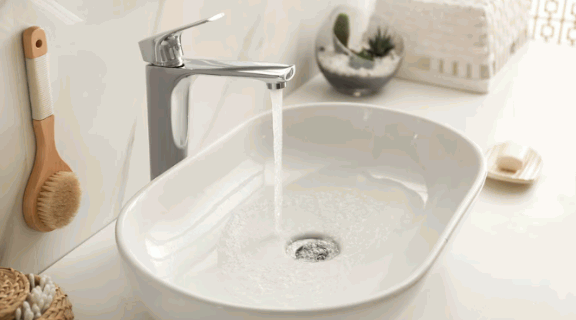
Have you ever experienced slow drainage or foul odours coming from your sink or shower? If so, you may have a clogged drain.
We will discuss why cleaning your drain is important and the common causes of clogged drains, such as hair build-up, soap scum, food waste, and grease.
Explore the signs of a clogged drain and get tips on how to clean a drain using natural ingredients or commercial products. Take precautions when cleaning a drain to ensure your safety. Let's get started!
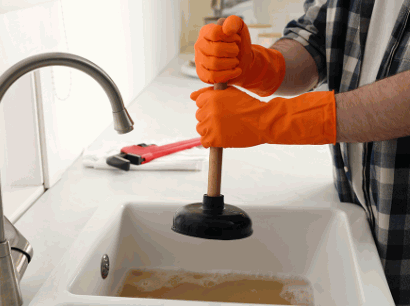
Table of Contents
Maintaining clean drains is crucial for the proper functioning of your plumbing system. Regularly cleaning your drains helps prevent blockages and obstructions that can lead to more serious plumbing issues over time, ensuring a smooth flow of water and waste.
It is easy to overlook drain cleaning as a routine household chore, but the repercussions of neglecting it can be costly. Clogs not only disrupt the water flow in your pipes but can also cause foul odours and attract pests. By using drain cleaners or seeking professional services, you can effectively remove built-up debris and maintain optimal drainage.
This simple maintenance task can extend the lifespan of your plumbing system, saving you from expensive repairs down the line. Remember, a little proactive care goes a long way in keeping your home's plumbing in top condition.
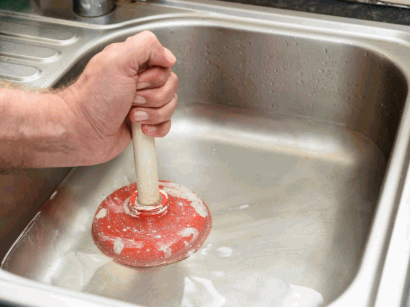
Blocked drains can result from various common causes, including the accumulation of hair, soap scum, food waste, and grease within the drain traps and pipes.
Regarding drains becoming blocked, one of the culprits often responsible for this inconvenience is hair. Whether it's from showering or grooming activities, strands of hair can slowly build up in the drain, creating a tangled mess that restricts the flow of water. The combination of soap scum and hair can form a sticky residue that further contributes to blockages.
Another common cause of blocked drains is soap scum, which is typically formed when soap mixes with hard water minerals. This sticky substance can cling to the walls of pipes, trapping other debris that goes down the drain. Regularly cleaning the drains can help reduce the build-up of soap scum and prevent blockages.
Discover more: Can You Use Drain Unblocker On A Toilet
Hair build-up is a frequent cause of blocked drains, especially in showers and bathroom basins. Using a drain snake or hair trap can help prevent hair from accumulating in the pipes and causing blockages.
When you wash your hair, loose strands often get washed away, eventually making their way down the drain. Over time, these strands can combine with soap scum and other debris, forming a sticky blockage that hinders water flow. As the build-up continues, it can lead to slow drainage or even complete blockages.
One effective solution to tackle this problem is to regularly use a drain snake to remove the accumulated hair from the pipes. Inserting the snake into the drain and twisting it helps to pull out the hair blockages without the need for strong chemicals.
Another preventive measure is to install a hair trap in your drains. These small devices catch hair before it goes down the drain, reducing the risk of blockages and maintaining proper drainage. By taking proactive steps to manage hair build-up, you can ensure that your drains stay clear and functional.
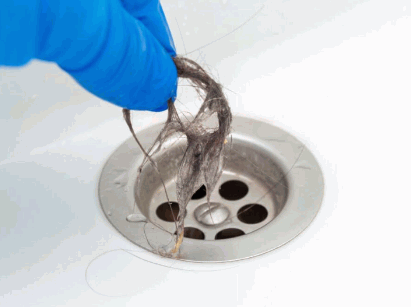
Soap scum build-up in drains can lead to slow drainage and eventually cause blockages. It forms as a result of soap residue combined with minerals in the water, creating a sticky film along the pipes.
This accumulation of soap scum can obstruct the flow of water through the pipes, resulting in gradual blockages and reduced efficiency of the drainage system. Over time, if left unaddressed, the blockages can become severe, leading to complete blockages that require professional intervention.
To tackle soap scum build-up, various methods can be used. One effective approach is to use natural cleaning solutions such as a mixture of vinegar and bicarbonate of soda to break down the scum and prevent further build-up. Alternatively, commercial products specifically designed to dissolve soap scum are available on the market, offering a quick and convenient solution to this common household problem.
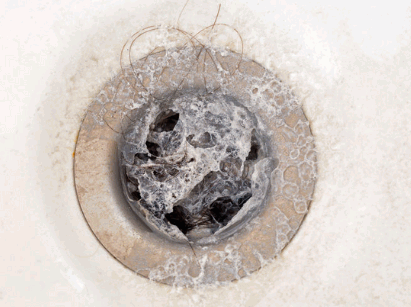
Accumulation of food waste in kitchen drains is a common cause of blockages. Grease and food particles can solidify in the pipes, leading to blockages that impede proper water flow.
This not only creates inconvenience for homeowners but also poses challenges for drain cleaning professionals. Food waste buildup requires specialised tools and techniques to effectively remove the blockages without causing damage to the pipes.
Solution: Implementing simple preventative measures can help in avoiding these issues. Using sink strainers to catch food particles, avoiding pouring grease down the sink, and regularly flushing drains with hot water and vinegar can all help prevent food waste from accumulating and causing blockages in kitchen drains.
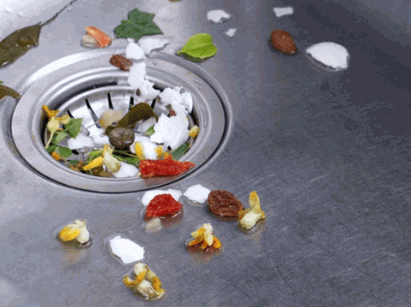
Grease build-up in drains, particularly in kitchen sinks, can cause tough blockages that are challenging to remove. The solidification of grease over time restricts water flow and can lead to unpleasant odours.
These blockages can be quite stubborn and resistant to traditional cleaning methods. The accumulation of grease not only affects the drain's functionality but also creates a breeding ground for bacteria and other harmful pathogens.
To tackle this issue, it is essential to implement regular maintenance and cleaning routines. One effective method to tackle grease build-up is by using a combination of hot water and vinegar. This solution helps break down the grease, making it easier to flush out of the drain pipes.
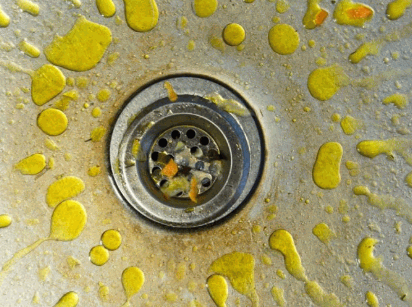
Identifying the signs of a blocked drain early is essential to prevent further damage. Common indicators include slow drainage, foul odours emanating from the drain, and water backing up in sinks or baths.
Among the most prevalent reasons for slow drainage are accumulated hair, soap scum, and grease, gradually building up inside the pipes. The unpleasant odours often result from decaying organic matter trapped in the blockage, creating a breeding ground for bacteria.
Water backing up in sinks or baths can signal a severe blockage, potentially indicating a complete obstruction in the drain. Ignoring these warning signs could lead to more severe plumbing issues, such as burst pipes or water damage to your property, causing costly repairs if left unaddressed.
One of the primary signs of a blocked drain is slow drainage, where water takes longer to empty from sinks, showers, or baths. This often occurs due to hair or soap scum obstructions in the drain pipes.
These blockages can accumulate over time, gradually restricting the flow of water and leading to slow drainage issues. Hair, particularly long strands, easily become trapped in the drain, creating a net-like barrier that traps other debris. As soap scum combines with dirt and minerals in the water, it forms a sticky residue that clings to the inner walls of the pipes. This gradual buildup not only reduces the diameter of the pipe but also creates a rough surface that further traps particles passing through.
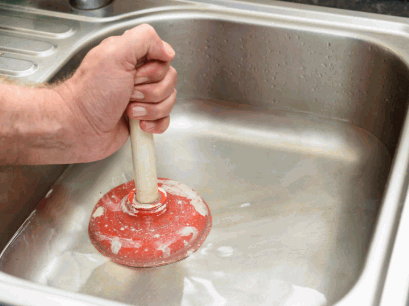
Unpleasant odours emanating from drains can signal a blockage or bacterial build-up within the pipes. Regular drain maintenance and cleaning can help eliminate foul smells and prevent blockages.
When food particles, grease, hair, or other debris accumulate in drains, they can lead to blockages. These blockages create a breeding ground for bacteria, which in turn produce unpleasant smells. To combat this, regular cleaning and maintenance are crucial. One effective method is pouring a mixture of hot water, bicarbonate of soda, and vinegar down the drain to break down build-up and eliminate odours. Using a drain strainer can help prevent debris from entering the pipes in the first place, reducing the likelihood of blockages and foul odours.
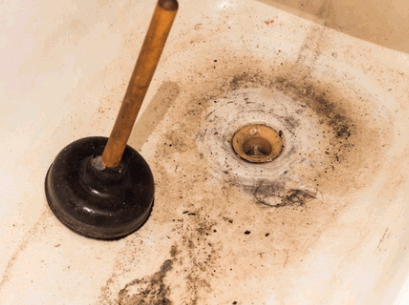
Water backing up in sinks or baths is a clear indication of a blocked drain. This occurs when blockages prevent water from flowing freely through the pipes, causing it to reverse and pool in the fixtures.
Such blockages not only create inconvenience but also pose significant risks to your plumbing system. When water accumulates and exerts pressure on the pipes, it can lead to cracks, leaks, or even burst pipes. This can result in extensive water damage to your property, requiring costly repairs. To prevent such issues, it's essential to address blocked drains promptly.
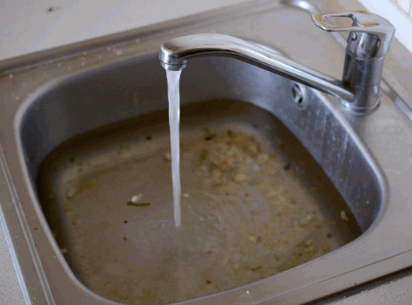
Cleaning drains using natural ingredients is an eco-friendly and cost-effective way to maintain drainage. Homemade solutions like bicarbonate of soda and vinegar or lemon juice can effectively dissolve blockages and freshen drains.
For a simple but powerful drain cleaner, mix 1/2 cup of bicarbonate of soda and 1/2 cup of vinegar. Pour this mixture into the drain, let it sit for about 30 minutes, then flush with hot water. The chemical reaction between the two ingredients creates bubbles that can help break down debris and clear the pipes.
Alternatively, you can use lemon juice as a natural deodorizer and cleaner. Squeeze the juice of one lemon down the drain, followed by hot water. The acidity of lemon juice can help loosen dirt and eliminate unpleasant odors.
A popular DIY drain cleaning method involves using bicarbonate of soda and vinegar to create a foaming reaction that helps break down blockages and clear drains. This natural solution is effective and environmentally friendly.
When you mix bicarbonate of soda and vinegar, it creates a fizzing reaction that helps dislodge debris and dirt stuck in the drains. The bubbling action helps to loosen the obstruction, making it easier to wash away.
It's important to allow the mixture to rest in the drain for at least 30 minutes to maximise its effectiveness. After the specified time, pour hot water down the drain to wash away the loosened blockage.
You can also try repeating the process if the blockage persists, and regular upkeep using this method can help prevent future obstructions.
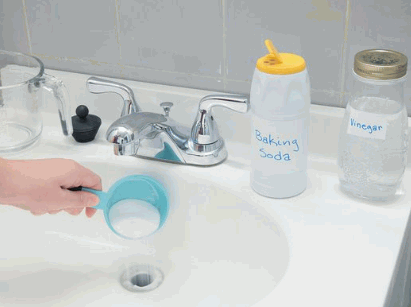
Salt combined with hot water can serve as a simple yet effective drain cleaner. This mixture helps dissolve grease and mineral build-up in pipes, improving drainage without the need for harsh chemicals.
One of the key benefits of using salt and hot water for drain cleaning is that it is a natural and eco-friendly method. Unlike commercial drain cleaners that can contain harsh chemicals harmful to the environment and your health, this DIY solution is safe and non-toxic. The abrasive nature of salt helps scrub away grime and debris stuck in the pipes, promoting better water flow and preventing blockages from forming.
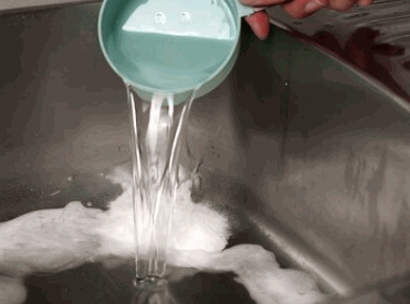
Combining lemon juice and bicarbonate of soda creates a natural drain cleaner that can help eliminate odours and break down residue in pipes. Citrus peels can also be used to freshen waste disposal units.
When using lemon juice and bicarbonate of soda as a drain cleaner, start by pouring one cup of bicarbonate of soda down the drain, followed by one cup of lemon juice. Allow the mixture to fizz and sit for about 30 minutes to break down any grease or grime. After that, flush the drain with hot water to wash away the loosened residue. This DIY method is not only effective but also environmentally friendly, avoiding the harsh chemicals found in commercial cleaners.
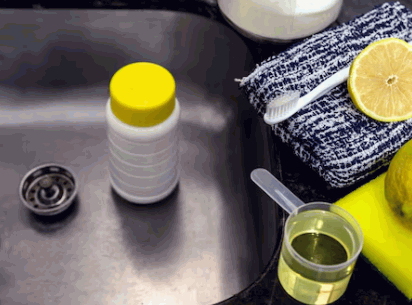
Commercial drain cleaning products offer a convenient solution for tackling tough clogs and blockages.
It is important to follow safety instructions when using chemical cleaners as they can be hazardous if not handled properly. It's recommended to wear gloves and eye protection, ensure proper ventilation, and never mix different types of chemical cleaners to avoid dangerous reactions.
Chemical drain cleaners contain powerful agents that can break down clogs quickly, but they also pose risks due to their toxic nature. Care must be taken to avoid contact with skin or eyes and prevent chemical burns.
These cleaners usually consist of strong alkalis like sodium hydroxide or acids such as sulphuric acid, designed to dissolve organic matter like hair, greases, or soap scum stuck in drains. When added to water, they release heat and gas to clear the blockage. Their corrosive nature can damage pipes if used in excess. It is crucial to follow the manufacturer's instructions while handling them and wear protective gear like gloves and goggles to prevent accidents.
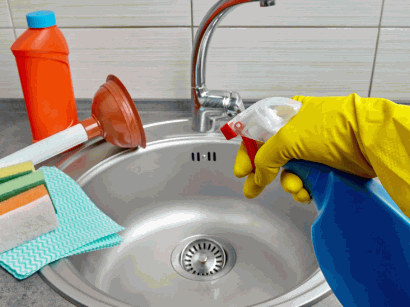
Enzymatic drain cleaners use natural enzymes to break down organic matter in drains, offering a safer alternative to chemical products. Brands like Draino provide effective solutions for maintaining clear drains.
These enzymatic cleaners work by introducing natural enzymes that target and digest organic materials clogging up drains, such as food particles, grease, or soap scum. The enzymes break down these substances into simpler compounds like carbon dioxide and water, which are environmentally friendly and pose no harm to plumbing systems.
Unlike harsh chemical drain cleaners, enzymatic solutions provide a gentle yet effective way to prevent blockages and keep drains flowing smoothly. Draino, for example, offers a range of products that not only clear blockages but also promote regular maintenance to prevent future plumbing issues.
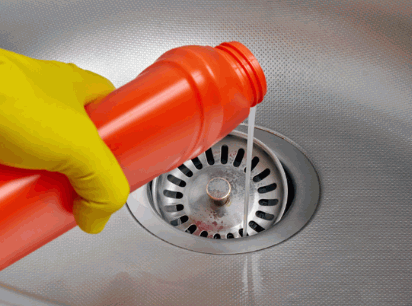
Mechanical drain cleaners such as drain snakes or weasels are physical tools used to dislodge stubborn blockages within pipes. They provide a manual method for breaking up blockages and restoring proper water flow.
When facing a blocked drain, it is essential to choose the right type of mechanical cleaner for the task. Drain snakes, also known as drain augers, are flexible tools with a coiled wire that can be inserted into the pipe to push through or pull out blockages. On the other hand, drain weasels are slender, barbed rods that are designed to grasp onto blockages and pull them back towards you.
Each tool has its strengths; drain snakes are better for reaching further down the pipe to break up blockages, while drain weasels are effective for catching hair and debris closer to the drain opening.
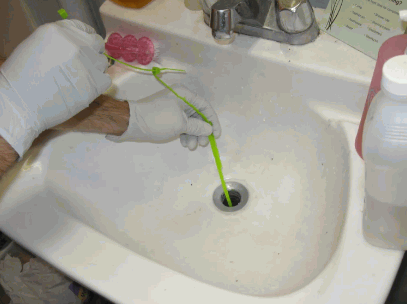
Taking appropriate precautions when cleaning drains is essential to ensure safety and effectiveness. Always wear protective gear, ventilate the area to avoid inhaling fumes, and follow instructions meticulously to prevent accidents.
Regarding drain cleaning, the last thing you want is to compromise your safety. Putting on protective gear such as gloves, goggles, and boots shields you from harmful chemicals and sharp objects commonly found in drains. Ensuring proper ventilation by opening windows or using fans helps disperse any noxious fumes that may arise during the cleaning process, safeguarding your respiratory health. Remember, adhering to product guidelines not only ensures your safety but also maximises the effectiveness of the cleaning process, yielding optimal results.
Protective equipment like gloves and safety goggles should be worn when handling commercial drain cleaners or using mechanical tools to prevent skin contact or eye injuries. Professional plumbers typically adhere to safety standards during drain cleaning.
Specialised clothing, such as coveralls or long-sleeved shirts, can offer extra protection against chemical splashes and sharp objects commonly found in drain systems.
Proper footwear, like steel-capped boots, is crucial to avoid foot injuries from heavy equipment or slipping on wet surfaces.
Using a respiratory mask or respirator is essential to shield against inhaling harmful vapours that may be present in drain cleaning processes.
Professional plumbers understand the importance of wearing the right gear as it not only safeguards their health but also enhances efficiency and precision in their work.
Proper ventilation is crucial during drain cleaning to disperse any unpleasant odours or fumes that may arise from chemical products. DIY enthusiasts should ensure adequate airflow in the workspace to maintain a safe environment.
Ensuring proper airflow is not only essential for odour control but also for the safety of individuals performing drain cleaning tasks. In enclosed spaces like bathrooms or kitchens, where drains are commonly located, inadequate ventilation can lead to the accumulation of dangerous gases and chemical vapours, posing health risks.
Ventilation strategies can vary depending on the size and layout of the space. For smaller areas, opening windows and using extractor fans can help in expelling odours and maintaining fresh air circulation.
For larger spaces or areas with poor ventilation, consider investing in ventilation fans or air purifiers to ensure a continuous flow of fresh air. Using protective gear such as masks and goggles is essential when working with strong cleaning products to reduce the risk of inhalation. Homeowners engaging in DIY drain maintenance should always read product labels carefully and follow safety instructions to prevent accidents.
When using commercial drain-clearing products or mechanical tools, it is vital to follow the instructions provided by the manufacturer or seek guidance from professional plumbers. Online resources like wikiHow can offer step-by-step tutorials for effective drain clearing.
Proper adherence to the recommended guidelines ensures not only the effective removal of blockages but also prevents any potential damage or accidents that may arise from incorrect usage. Clearing drains correctly can significantly prolong the lifespan of your plumbing system and save you from costly repairs in the long run.
For those facing particularly stubborn blockages or uncertainty about the best approach, consulting with a licensed plumber is highly advisable. Professional advice can help in assessing the situation accurately and recommending the most suitable course of action to address any underlying issues.